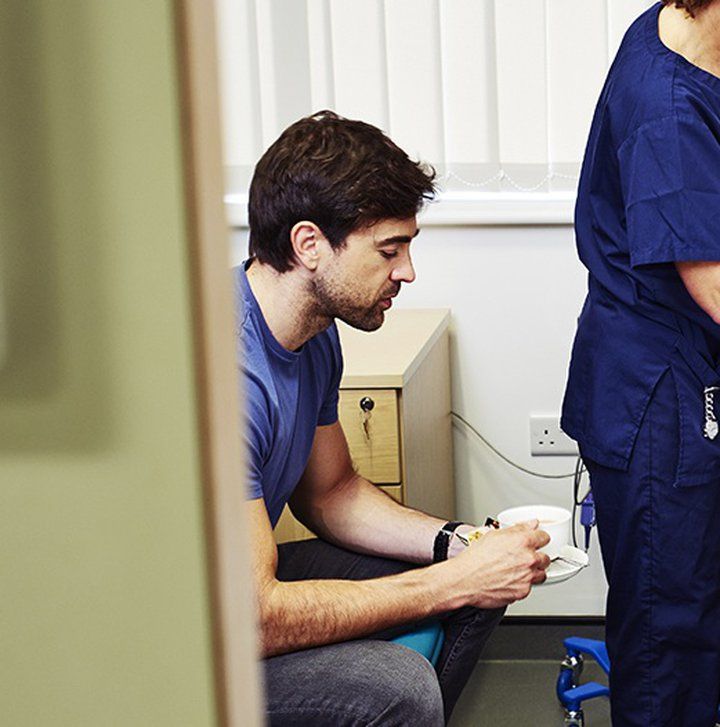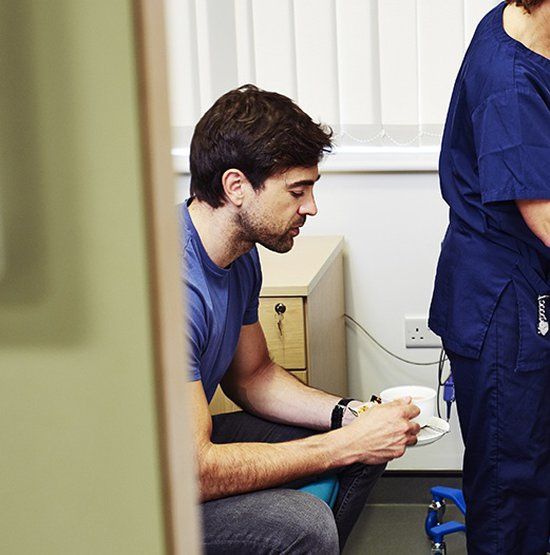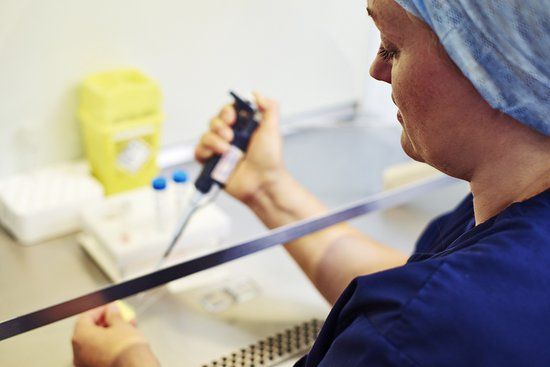
As a new study reveals that sperm counts in Western men have more than halved over the past 40 years, what can you do if you’re worried about your own fertility?
A low sperm count is one of the most common causes of male infertility. Although we can’t raise your sperm count, we can help you to become a father using the sperm you do have, through tailored treatment and the expertise of our male fertility specialists, Dr Steve Bromage and Dr Muhammad Akhtar.
Here’s our advice on what to do if you’re stressed about your sperm:
Look at your lifestyle
Your BMI, diet, alcohol intake and smoking are all factors that can affect your sperm. So make sure you’re in the best health you can be, to boost your chances of natural conception or before fertility treatment.
If you need specialist help, our fertility nutritionist Jeannette Jackson can formulate a tailored diet and nutrition plan for you that will help you lower your BMI and get you fertility fit.
Fertility testing: Get your sperm checked
How do you know for sure if you have a sperm problem? Through fertility checks. Even if you’re not planning a baby yet, it’s a good idea for you and your partner to be fertility tested.
You can self-refer for a semen analysis test or opt for a thorough Fertility MOT. A semen analysis test will tell you if there’s an issue with your sperm that would make natural conception difficult, so you don’t waste time trying to conceive when you actually need help.
We’ll check your sperm count, how well it moves, it’s shape – all the properties your sperm needs to reach and fertilise an egg.
We can also examine your sperm for DNA damage, which can be a cause of unexplained infertility and miscarriage, and carry out blood tests to check hormone levels and chromosome abnormalities that could affect sperm production.
Treatments for low sperm count & male infertility
If your sperm checks indicate a problem, our male fertility specialists will formulate the best treatment to overcome it. Our aim is to try to help you to conceive using your own sperm.
Low sperm count, slow-moving sperm, abnormal shaped sperm
IVF may be advised if you have what we consider to be mild infertility, such as sperm that isn’t moving as well as it should. IVF mixes sperm and egg together in our laboratory.
Or you may be offered ICSI if you have a low sperm count or abnormally shaped sperm, preventing it from fertilising the egg. ICSI is where a single healthy sperm is injected directly into the egg to fertilise it. ICSI overcomes any problems with sperm movement, shape and number.
Severe male infertility: No sperm in your sample or very low sperm count
Surgical retrieval of sperm may be possible if your fertility check shows you aren’t producing any sperm at all or have an extremely low sperm count. Surgery involves extracting usable sperm from within the testicular tissues, and is performed as a day-case procedure. Any retrieved sperm is assessed for quality and then used in an ICSI cycle with your partner’s eggs, to help you conceive.
Using donor sperm for male infertility
If you can’t conceive using your own sperm, donor sperm gives you the chance to still become a father. Our sperm donors are all UK-based healthy and fertile men, aged 18-41, who donate to our sperm bank solely to help people become parents and are fully traceable for your child in future.
You’ll be given a choice of sperm donors based on your preferences – we have no waiting list for donor sperm - and we’ll ensure you’re just as involved and supported through every stage of treatment.
Manchester Fertility: Specialist male fertility clinic in Cheshire and Manchester
Manchester Fertility is one of the UK’s top clinics for the treatment of male infertility. You can get in touch with us discreetly and at your convenience if you’re worried about your sperm:
- Live Chat: Speak to our Patient Advisors via Live Chat, available during clinic hours via our homepage
- Request a callback and we’ll be in touch when it suits you to talk: 0161 300 2737
- Email us: [email protected]
You can also read our useful Guide for Men.
Last updated: 20th January 2020








